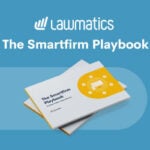How Baude And Paulsen Opened Pandora's Box: Is Trump Eligible For The Presidency?
It's hard to say where we go from here.
 I did you a favor. I read the entirety of William Baude and Michael Paulsen’s forthcoming 126-page magnum opus that will be published in “The University of Pennsylvania Law Review.” Now, you don’t have to read the thing (unless you’re a glutton for punishment).
I did you a favor. I read the entirety of William Baude and Michael Paulsen’s forthcoming 126-page magnum opus that will be published in “The University of Pennsylvania Law Review.” Now, you don’t have to read the thing (unless you’re a glutton for punishment).As you probably already know, Baude and Paulsen argue that Section Three of the Fourteenth Amendment forbids former officeholders who engaged in insurrection or rebellion from again holding office. Baude and Paulsen assert that this provision is unambiguous and self-executing, that Donald Trump engaged in insurrection or rebellion, and that Trump is thus disqualified from again holding the presidency. Baude and Paulsen are conservative thinkers, and they base their argument on a conservative — originalist — view of the Constitution. Their argument should appeal both to liberals (because it disqualifies Trump from running again) and to conservatives (because it’s based on a textual interpretation of the Constitution).
Baude and Paulsen have been cheered by some, including Professor Laurence Tribe, who is a renowned liberal, and former judge Michael Luttig, who is a renowned conservative. Tribe and Luttig jointly supported Baude and Paulsen’s thesis in a piece in The Atlantic.
Baude and Paulsen have been criticized by others, including Harvard Professor Noah Feldman, who published an opinion column in The Washington Post.
I’m not here to criticize any of these folks. To the contrary: These are extraordinarily smart people, up and down the line, and they all have intelligent things to say.
I’m just going to draw the perhaps obvious conclusion from this debate: Baude and Paulsen have opened Pandora’s Box. It’s hard to say where we go from here.
Each of our 50 states has created some system to decide whose name can properly appear on a ballot in either a primary or a general election. In some places, the secretary of state controls this decision; in other places, it’s some other election official. In some states, litigation about whether a person’s name has been properly included or excluded can be filed in state court; in other states, those challenges would be made in federal court. I have neither the ability nor the word count to discuss all of those variables in this short column.
But within the next couple of months, election officials will have to decide whether Trump’s name can appear on a ballot. Some election officials in deep red states will presumably decide that Trump’s name belongs on the ballot. Democratic voters will then sue.
Some election officials in bright blue states will presumably decide that Trump’s name does not belong on the ballot. Trump will then sue.
At least one voter has jump-started this process and filed a lawsuit for a declaratory judgment that Trump’s name cannot appear on the Florida ballot.
The judicial system will have to move at breakneck speed: These lawsuits must start in trial courts, move up through appellate courts, and ultimately be decided by the Supreme Court before early voting starts in next year’s presidential election. (Arguably, the Supreme Court must decide even before that, to avoid the prejudice caused by primary voters considering a candidate who’s not eligible to serve as president.)
The outcome in the Supreme Court is by no means preordained. First, many justices believe their first duty is to the law, not to a political party, and those justices will try to render a ruling that is correct, whatever the consequences. You may consider that a naive point of view. If so, consider that, second, although the current Supreme Court is conservative, it is not MAGA conservative. For example, Chief Justice John Roberts, who was appointed by Bush 43, surely holds long-standing conservative positions, but he’s probably no supporter of Trump’s. If Roberts were ruling on the basis of politics, rather than law, Roberts might prefer that Trump not be able to run again for president. This might let the Republican Party return to its traditional form. No one can know, with certainty, how the Supreme Court will rule on the issue that Baude and Paulsen have identified.
Two things, however, are certain: First, Baude and Paulsen have raised a legitimate issue that ought to be decided by the courts. Now that they’ve identified that issue, the issue will be put to use by folks who want to keep Trump’s name off the ballot. The litigation over this issue in the next 15 months may not be as captivating as Trump criminal trials, but it’s actually more likely to influence the result of the election.
Second, if Baude and Paulsen’s argument succeeds, it doesn’t succeed only to keep Trump’s name off the 2024 presidential ballot. In the short term, the issue will be used to try to keep the names of other people who supported the January 6 rioters — perhaps Sen. Ted Cruz or Sen. Josh Hawley, perhaps other officials hidden deeper within levels of government — off the ballot. In the long term, the issue will, of course, also be used against Democrats, as Republicans seek to keep the names of candidates they oppose off the ballot. And, in those later cases, Republicans will file their ballot challenges in deep red states, ensuring litigation before deep red judges, to increase the likelihood of the challenges succeeding.
That’s the nature of Pandora’s Box: It’s easy to open.
Mark Herrmann spent 17 years as a partner at a leading international law firm and is now deputy general counsel at a large international company. He is the author of The Curmudgeon’s Guide to Practicing Law and Drug and Device Product Liability Litigation Strategy (affiliate links). You can reach him by email at inhouse@abovethelaw.com.
Sponsored

How to Achieve Quicker, More Valuable Case Settlements with Minimal Effort: A Guide for Personal Injury Lawyers

LawPay Pro Offers Upgraded Time And Billing Essentials

How Generative AI Is Disrupting Law Firm Billing Practices

InterAction+ Brings Power Of CRM Software To Law Firms Of All Sizes

The Smartfirm Playbook - Thriving In Today’s Legal Landscape

The Smartfirm Playbook - Thriving In Today’s Legal Landscape








